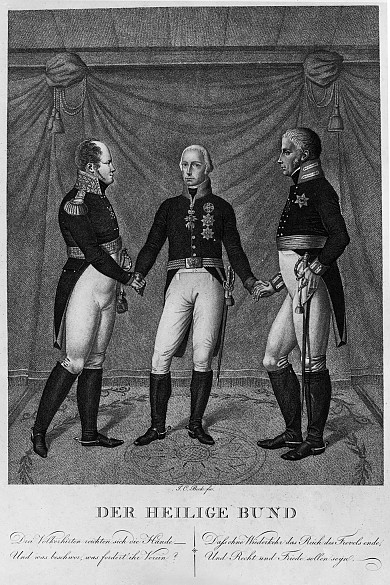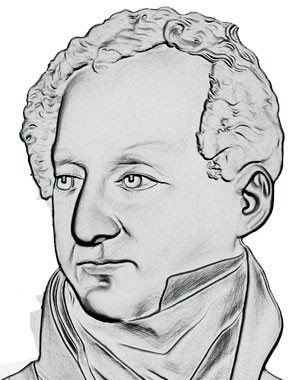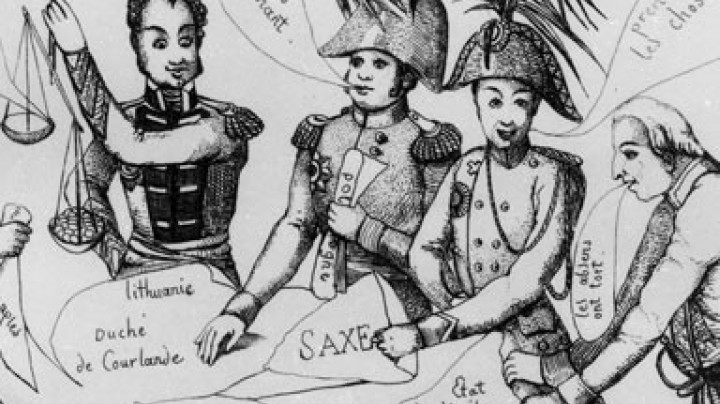‘In the name of the holy and indivisible Trinity’
Once again the conservative monarchs acted in the name of ‘divine Providence’, as they often had when legitimizing territorial claims. However, the Holy Alliance was not destined to last long.
Declaration of the Holy Alliance at its foundation on 26 September 1815In the name of the holy and indivisible Trinity! As a result of the great events that have overtaken Europe in the last three years, and in particular of the benefits that Divine Providence has poured out upon the states whose governments have set upon it their sole faith and hopes, Their Majesties the Emperor of Austria, the King of Prussia and the Tsar of Russia have become deeply convinced of the necessity of founding their mutual relations on the elevated truths taught by the imperishable religion of the divine Saviour. They thus solemnly declare that the sole goal of the present agreement is to announce to the whole world their unshakable decision to take none other commandments than those of justice, love and peace as the guideline for their actions in the internal administration of their states and in their political relations with all other governments. Far from only being relevant to private life, these commandments should indeed have a direct influence upon the decisions of rulers and guide all their steps, so that they may promote the long life of human institutions and remedy their imperfections.
Friedrich Wilhelm III the Protestant king of Prussia, Alexander I the Orthodox tsar of Russia and the Franz I the Catholic emperor of Austria join hands ‘in the name of the holy and indivisible Trinity’ – the prime slogan of Europe’s conservative Christian monarchs when they created the ‘Holy’ Alliance in September 1815. The goal of this coalition was to stem the spread of the ideas of the Enlightenment, to make the Christian religion the foundation of politics, and to maintain the monarchical principle, that is to say, the territorial claims of the respective dynasties. The designation of the alliance as ‘holy’ reflects the fact that the monarchs regarded their legitimacy as deriving from God – they saw themselves as rulers ‘by divine right’. For the Habsburgs, the religious emphasis was nothing unusual – a marked piety is considered to have been a family characteristic of the Habsburg dynasty generally, and indeed of other Christian dynasties of this time.
As a logical consequence of the Congress of Vienna, the Holy Alliance was to maintain the existing order of the European states though military interventions. Every revolutionary or nationalistic uprising was to be nipped in the bud. Interventions of this kind took place in lands such as Italy (Naples), Spain and Portugal. In defiance of Metternich’s objections, the Greek struggle for freedom in the 1820s was supported by Great Britain, France and Russia. Great Britain and France increasingly stood up against Metternich’s political interventionism, leading to a rapid weakening of the solidarity between the powers of the Alliance.
The basic ideas of the Holy Alliance – central to which was the emphasis on the Christian religion shared by the three powers – were graphically stated in the foundational declaration of 26 September 1815.
















